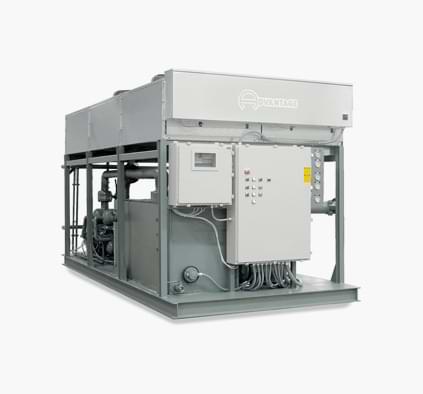Industrial Process Cooling Solutions
Advantage Industrial Chillers for Heavy-Duty Applications
In industrial manufacturing, Advantage industrial chillers are essential for maintaining optimal operating temperatures in high-heat processes like CNC machining, laser systems, welding, and hydraulic equipment. These robust units ensure consistent performance, prevent thermal damage, and extend equipment life.
Advantage industrial chillers use non-ferrous fluid circuits, brazed plate evaporators, and Copeland scroll compressors to deliver reliable, corrosion-resistant cooling in demanding environments. Central systems up to 540 tons and modular configurations support large-scale facilities, while remote monitoring and adaptive controls enable predictive maintenance and energy optimization. Their rugged design handles wide load variations and harsh conditions typical in metalworking and heavy industry.
Advantage industrial chillers play a critical role in thermal management, heat dissipation, and process stability across manufacturing sectors. Built with heavy-duty components and engineered for 24/7 operation, these systems meet ASME, UL, and NEMA standards. Scalability, redundancy options, and integration with building automation systems make them ideal for mission-critical applications.
Industrial Cooling Solutions
Achieving maximum productivity and equipment longevity requires precision cooling tailored to industrial demands. Advantage Engineering leads in industrial cooling with a full line of high-capacity chillers designed for your operation.
Machine Tool Cooling:
Central and portable chillers maintain spindle and hydraulic oil temperatures in CNC machines for precision and speed.
Laser System Cooling: Water-cooled units remove heat from CO2 and fiber lasers to ensure beam quality and component life.
Welding Cooling: Industrial chillers cool torches, power supplies, and workpieces to prevent overheating and improve weld consistency.
Hydraulic Heat Removal: Chillers stabilize oil temperatures in presses and injection systems for reliable operation.
Process Line Cooling:
Large central systems cool rollers, dies, and reactors in continuous manufacturing lines.
Energy Recovery: Heat exchangers capture waste heat for facility preheating or hot water generation.



